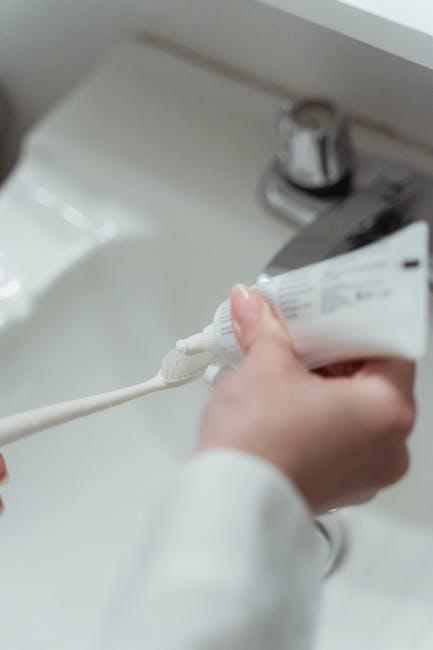Fluoride Q&A: An Expert Breaks Down How It Helps Kids, and Its Unique History in Michigan
Fluoride has long been a key player in preventive dental care, especially when it comes to protecting children’s teeth. But many parents wonder: What exactly is fluoride, how does it help kids, and why does Michigan have such a special connection to this mineral? In this in-depth Q&A article, experts from Michigan Medicine break down the science, benefits, and fascinating history behind water fluoridation in Michigan, providing parents with trusted knowledge to keep their children’s smiles bright and healthy.
What Is Fluoride and Why Is It Important for Kids?
Fluoride is a naturally occurring mineral found in water, soil, plants, and even the human body. Its dental benefits are well-documented, including strengthening tooth enamel and making teeth more resistant to decay caused by acids and bacteria.
Key Dental Benefits of Fluoride for Children
- Remineralizes enamel: Fluoride promotes the repair of early tooth decay by restoring minerals to weakened enamel.
- Protects against cavities: It inhibits the growth of harmful oral bacteria that cause cavities.
- Reduces tooth sensitivity: Strengthened enamel decreases sensitivity caused by exposed dentin.
- Supports healthy development: Especially beneficial when children’s teeth are forming and erupting.
How Is Fluoride Delivered to Children?
There are multiple ways fluoride reaches kids for optimal dental protection:
- Community water fluoridation: Many municipalities add fluoride to public drinking water — including most of Michigan’s cities.
- Fluoride toothpaste: Recommended to use from the eruption of the first tooth, in appropriate amounts depending on age.
- Professional fluoride treatments: Dentists often apply fluoride varnishes or gels during dental visits for extra protection.
- Supplement tablets/drops: Sometimes prescribed for children lacking fluoridated water access.
Michigan’s Unique Fluoride History — Why Does It Matter?
Michigan holds a pioneering place in the history of water fluoridation in the United States. The state was among the first to recognize the benefits and act accordingly.
Historical Milestones in Michigan
| Year | Event | Significance |
|---|---|---|
| 1945 | Grand Rapids, MI becomes first U.S. city to fluoridate water | Set national precedent and demonstrated cavity reduction |
| 1950s-1970s | Statewide fluoridation programs expand | Improved dental health statistics statewide |
| 2010s | Michigan continues water fluoridation support through public health initiatives | Ongoing cavity prevention and health education |
This groundbreaking initiative spearheaded by Michigan health officials and researchers helped reduce tooth decay by nearly 60% among children — a remarkable public health victory that continues today.
Expert Q&A: Answers to Common Fluoride Questions from Michigan Parents
Q1: Is fluoride safe for my child?
Absolutely. Fluoride in the recommended amounts is safe for children and adults alike. Over 70 years of research, including local studies in Michigan, affirm its safety and efficacy in cavity prevention.
Q2: How much fluoride should my child have?
Generally, children under 3 should use a smear of fluoride toothpaste, while kids 3-6 years can use a pea-sized amount. Your dentist can guide if additional fluoride supplements or treatments are needed depending on your water supply.
Q3: Can my child get too much fluoride?
Excessive fluoride intake can cause fluorosis, which usually appears as mild white spots on teeth. This is rare and preventable by supervising brushing and using appropriate toothpaste amounts.
Q4: My water already has fluoride — do I need extra treatments?
If your local water is fluoridated (as is common across Michigan), additional fluoride treatments may not be necessary unless your child is at high risk for cavities. Discuss this with your dentist.
Practical Tips for Parents: Maximizing Fluoride Benefits for Kids
- Use fluoride toothpaste from the first tooth, applying appropriate quantities.
- Supervise young children brushing to prevent swallowing excess toothpaste.
- Ensure your family drinks fluoridated water if available — it’s one of the easiest cavity prevention measures.
- Schedule regular dental check-ups to assess fluoride needs and monitor dental health.
- Talk to your pediatrician or dentist before giving fluoride supplements or kids’ mouth rinses.
Case Study: Fluoride’s Impact on Michigan Children’s Dental Health
In Grand Rapids, the nation’s first city to fluoridate water, dental health improved impressively within 5 years of implementation:
| Indicator | Pre-Fluoridation (1945) | Post-Fluoridation (1950) | Improvement |
|---|---|---|---|
| Average cavities per child | 3.8 | 1.5 | 60.5% reduction |
| Child dental visits for decay | High | Significantly Lower | Improved oral health |
| Cost savings on dental care | Substantial dental expenses | Reduced by ~40% | Economic benefit |
This real-world evidence showcases fluoride’s power as a public health intervention, especially for children.
Conclusion: Why Fluoride Remains Essential for Healthy Smiles in Michigan
Fluoride continues to be one of the most effective tools in preventing tooth decay and promoting oral health in children — a fact strongly supported by decades of research and Michigan’s own pioneering water fluoridation history. For parents, understanding how fluoride works, how much is the right amount, and the resources available through local water systems and dental professionals empowers families to maintain bright, healthy smiles for life.
Want to learn more about fluoride and children’s dental health? Visit Michigan Medicine’s dental health resources or consult your dentist for personalized recommendations.


